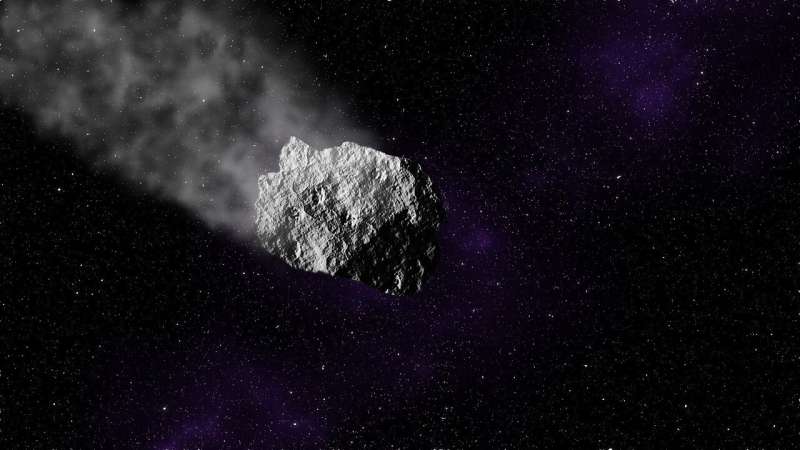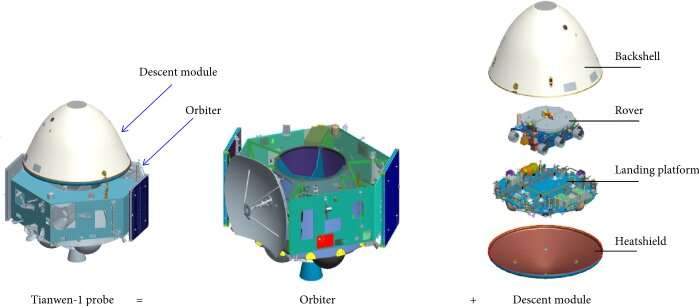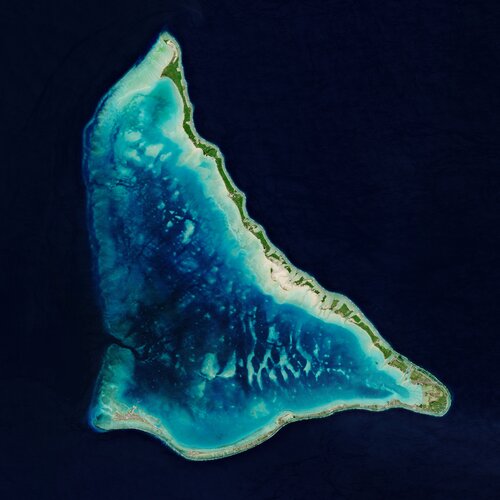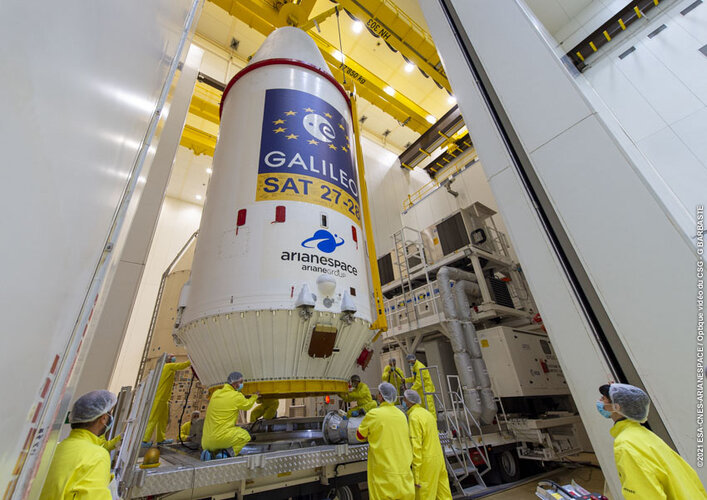
Copernical Team
Solar Orbiter flies by Earth before beginning final journey to Sun

The Solar Orbiter space probe had a brief encounter with its home planet on Saturday morning when it circled the Earth for the first and last time while executing a gravity assist to slow itself down before setting off for the Sun.
Solar Orbiter launched in February 2020, and has already flown through the tail of a comet, flown by Venus and captured the most detailed photographs of the Sun ever taken.
On Saturday morning at 5.30 a.m. (CET) the spacecraft flew over the Earth at an altitude of 460 kilometers (285 miles), passing directly over North Africa and the Canary Islands.
According to the ESA, in order to execute the orbits the probe risked impact with the space debris the surrounds Earth. But according to Simon Plum, head of mission operations at the ESA control center in Darmstadt, the risk of collision was minimal.
In a worst case scenario of potential collision, he said, the probe could have initiated an evasive maneuver up to six hours before impact. However, Plum said, this had not been necessary and the orbiter was now on its way back into deep space.
Killer asteroids abound. NASA is ready to do something about it

The Russia incident was a warning.
On a winter morning in 2013, a meteor the size of a four-story building screamed across the country, exploding near the city of Chelyabinsk and injuring more than 1,600 people amid widespread property damage.
The chunk of rock and iron, which was 60 feet across, served as a violent reminder that Earth, bombarded daily with tons of space-going debris, periodically intersects with large planet killers—and a significant portion of those remain undocumented.
After years of study and discussion, NASA has launched its first effort to spare Earth the kind of calamity that extinguished the dinosaurs, crashing a space probe into an asteroid to alter its speed and course. The Double Asteroid Redirection Test (DART) lifted off Nov. 23 local time aboard a SpaceX rocket from California and will cruise for 10 months to a binary asteroid system.
The idea is that if humans have adequate time to react—decades of notice being preferable—enough energy can be transferred into a speeding rock to alter its trajectory and make it miss Earth, avoiding catastrophe up to and including an extinction-level event.
Guiding Tianwen-1 to China's first successful Mars rover landing

Mars landing missions only succeed about half the time, a rate largely determined by the entry, descent and landing (EDL) phase, according to the researchers who designed Tianwen-1's control systems. They published their guidance, navigation and control approach for Tianwen-1 on October 16 in Space: Science & Technology.
"The EDL phase, which begins at the Mars atmosphere interface and ends with a surface touchdown, is crucial for a Mars landing mission," said Xiaolei Wang, researcher professor at Beijing Institute of Control Engineering.
Wang explained that most failures occur during this phase, typically because the communication delay between Mars and Earth is too large to accommodate the time urgency of the EDL phase.
"The spacecraft must perform autonomous guidance, navigation and control (GNC) to provide reliable key event triggers, as well as accurate and reliable state estimates to implement accurate and reliable trajectory and attitude controls," Wang said.
Sentinel-6 returning most precise data ever on sea level

Sea-level rise is one of the most immediate consequences of climate change, as highlighted recently through urgent pleas from leaders of island nations at the COP26 summit. Global measures of sea-level rise are imperative to underpinning global policy and for strategies to protect coastlines and low-lying lands. Measuring tiny differences in the height of the sea surface from space is no easy task – but that’s exactly what the Copernicus Sentinel-6 Michael Freilich satellite is doing. And, after a year
Galileo: en route to full operational capability
 Video:
00:05:36
Video:
00:05:36
Soon another pair of Galileo satellites will be launched on top of a Soyuz from Europe spaceport in French Guiana. These satellites are the first of the so-called 'Batch 3', comprising of 12 additional first-generation Galileo satellites commissioned in 2017 to bring the constellation to full operational capability. They will be used to further expand the constellation up to 38 satellites and act as backups and spares for satellites that reach their end-of-life.
This 11th Galileo launch also marks the 10 year anniversary of the first launch of the Galileo operational satellites and the start of the construction
Galileo satellites given green light for launch

Europe’s next pair of Galileo satellites have been given a green light for launch. Last Friday’s Launch Readiness Review confirmed that the satellites, the supporting ground installations, and the early operations facilities and teams are ready for lift-off on the early hours of Thursday morning, European time.
Roasted and Shredded by a Stellar Sidekick
 An exhausted star still has some punches to deliver. Astronomers have found that a white dwarf is pummeling a companion object - either a lightweight star or a planet - with incessant blasts of heat and radiation plus a relentless gravitational pull tearing it apart.
Most stars, including the Sun, will become "white dwarfs" after they begin to run out of fuel, expand and cool into a red gi
An exhausted star still has some punches to deliver. Astronomers have found that a white dwarf is pummeling a companion object - either a lightweight star or a planet - with incessant blasts of heat and radiation plus a relentless gravitational pull tearing it apart.
Most stars, including the Sun, will become "white dwarfs" after they begin to run out of fuel, expand and cool into a red gi NASA's X-59 stands on its own
 The NASA and Lockheed Martin team behind the X-59 Quiet SuperSonic Technology (QueSST) have recently removed the aircraft from its jig system, or external supports. The next step is proving the research aircraft is structurally sound and ready for final assembly.
The team has made significant progress on the X-59 QueSST assembly. In late October, they pulled the aircraft away from the jig
The NASA and Lockheed Martin team behind the X-59 Quiet SuperSonic Technology (QueSST) have recently removed the aircraft from its jig system, or external supports. The next step is proving the research aircraft is structurally sound and ready for final assembly.
The team has made significant progress on the X-59 QueSST assembly. In late October, they pulled the aircraft away from the jig Space Force General Admits That US Lagging Behind Russia, China in Hypersonic Weapons
 Last month, the US military botched its own hypersonic missile testing, while China reportedly conducted a test of a missile capable of sending nuclear weapons around the globe this summer. Russia also successfully test-fired its "Zircon" hypersonic missile in the arctic on 18 November.
US Space Force General David Thompson on Saturday warned that American hypersonic missile capabilities a
Last month, the US military botched its own hypersonic missile testing, while China reportedly conducted a test of a missile capable of sending nuclear weapons around the globe this summer. Russia also successfully test-fired its "Zircon" hypersonic missile in the arctic on 18 November.
US Space Force General David Thompson on Saturday warned that American hypersonic missile capabilities a China's Hypersonic test leaves Pentagon officials 'Baffled' by Beijing's advance
 The alleged July test of a hypersonic Chinese missile has sparked concerns in the United States over how Washington seems to lag behind Beijing in the field of hypersonic weapons' capabilities.
The US military and intelligence officials were caught off-guard by China's reported hypersonic missile test carried out in July at five times the speed of sound - an unprecedented feat, The Financi
The alleged July test of a hypersonic Chinese missile has sparked concerns in the United States over how Washington seems to lag behind Beijing in the field of hypersonic weapons' capabilities.
The US military and intelligence officials were caught off-guard by China's reported hypersonic missile test carried out in July at five times the speed of sound - an unprecedented feat, The Financi 